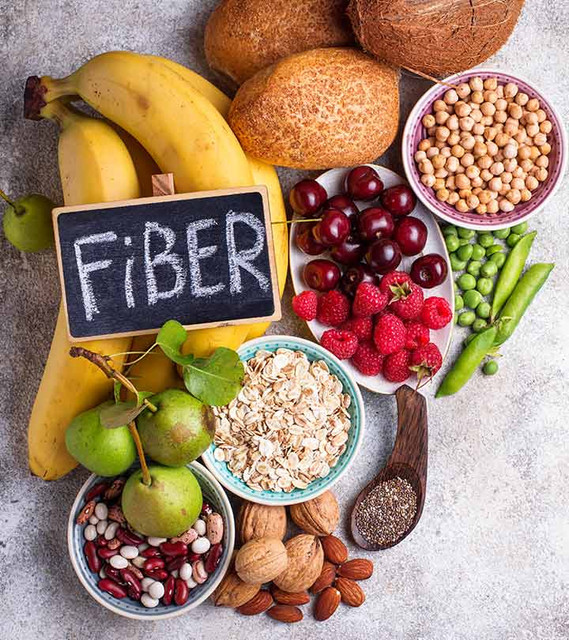Nov 3rd 2025
The Dire Consequences of Fiber Deficiency
How much thought do you give to dietary fiber? If you’re like most of us, it’s not a priority—but it should be! Dietary fiber is one of the most important determinants of your health! Almost everyone today does not get enough fiber in their diet. Our lack of fiber awareness has created a health crisis. Lack of fiber is a major contributor to our epidemic of chronic disease and can be a significant factor in causing diabetes, cancer, heart disease, obesity, depression and other mental illness, allergies, autoimmune syndromes, and infections.
Why is fiber so important? Dietary fiber, plant material that can’t be digested, is essential to our health because it nourishes the healthy flora in our guts known as the microbiome and helps to maintain the health of our gut tissue.
Your health is completely dependent on the health of your gut flora. Healthy flora helps to digest our food and enhance the absorption of nutrients. They produce certain essential vitamins; they assist detoxification, and about 70-80 percent of the immune system is located in the gut where healthy flora control disease-causing bacteria, yeasts and parasites.
Healthy flora also ferments fiber to create nutrients for intestinal cells and build strong intestinal walls. Weak intestinal walls, also called “leaky gut,” allow toxic elements into the bloodstream, poisoning your entire body. The newest science is confirming that leaky gut is a major national health problem.
Fiber also helps to move matter through the gut so it doesn’t sit there putrefying, creating toxins that can be absorbed into your body.
To sum it up, without fiber, you get a sick microbiome; without a healthy microbiome, you get a sick body. It’s that simple.
While the government recommends 28 grams of fiber per day on a 2,000-calorie a day diet, the average intake is only about 15 grams, and 95 percent of the population is classified as deficient. But in the 1970s, Dr. Denis Burkitt, a surgeon-missionary in Africa, who was the first to point out fiber deficiency in modern, industrialized cultures, found Africans who were free of digestive complaints and many common chronic diseases got 40-100 grams of fiber in their daily diet.
At Beyond Health, we recommend an optimal daily fiber intake of at least 40 grams. This isn’t easy to get without paying attention to how much fiber you’re eating. We’ll be talking more about fiber in the coming weeks—how it affects health and how to get more of this health-generating nutrient into your diet.
References:
 Fuel your life with the purest vitamins
Fuel your life with the purest vitamins
